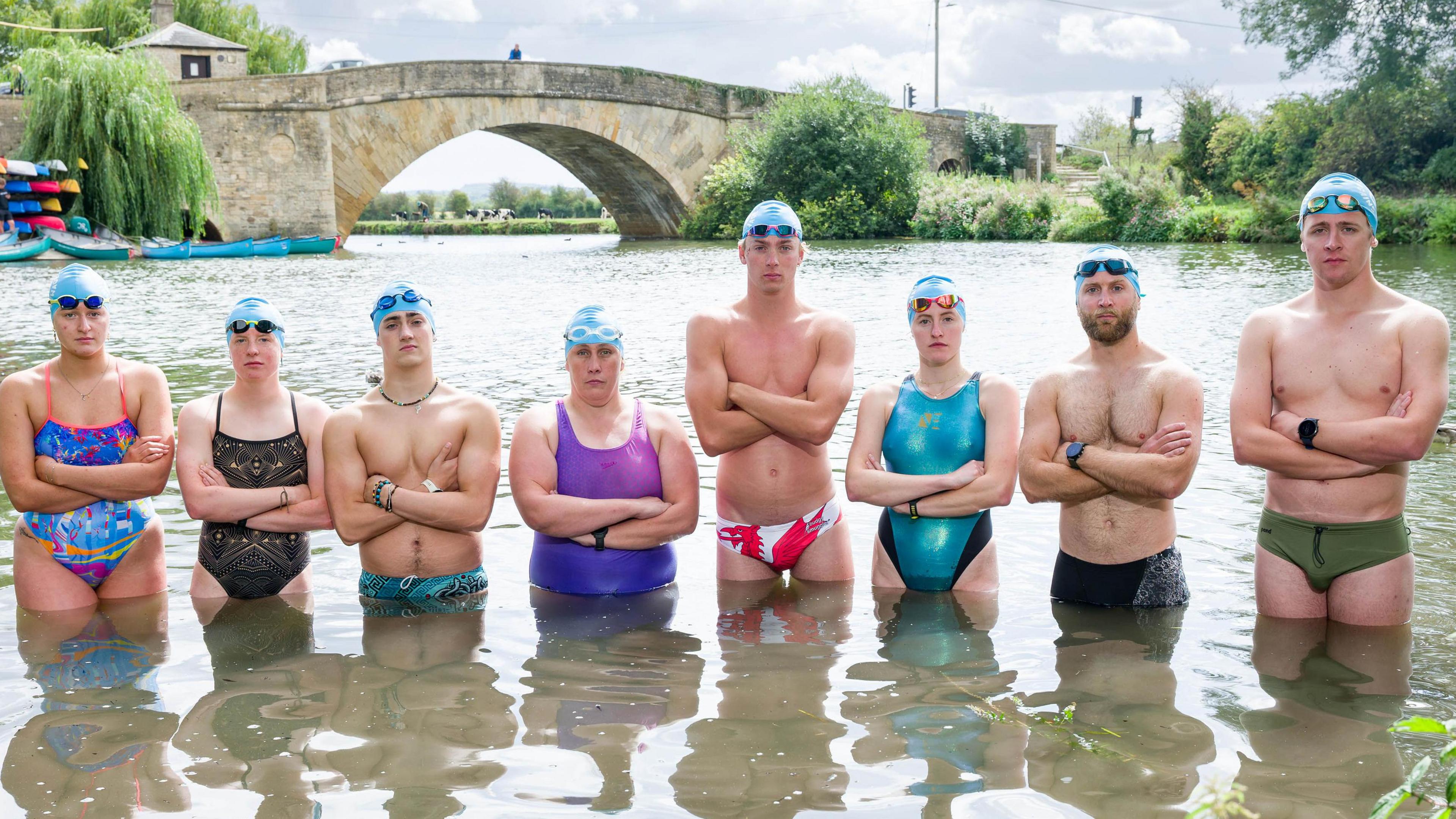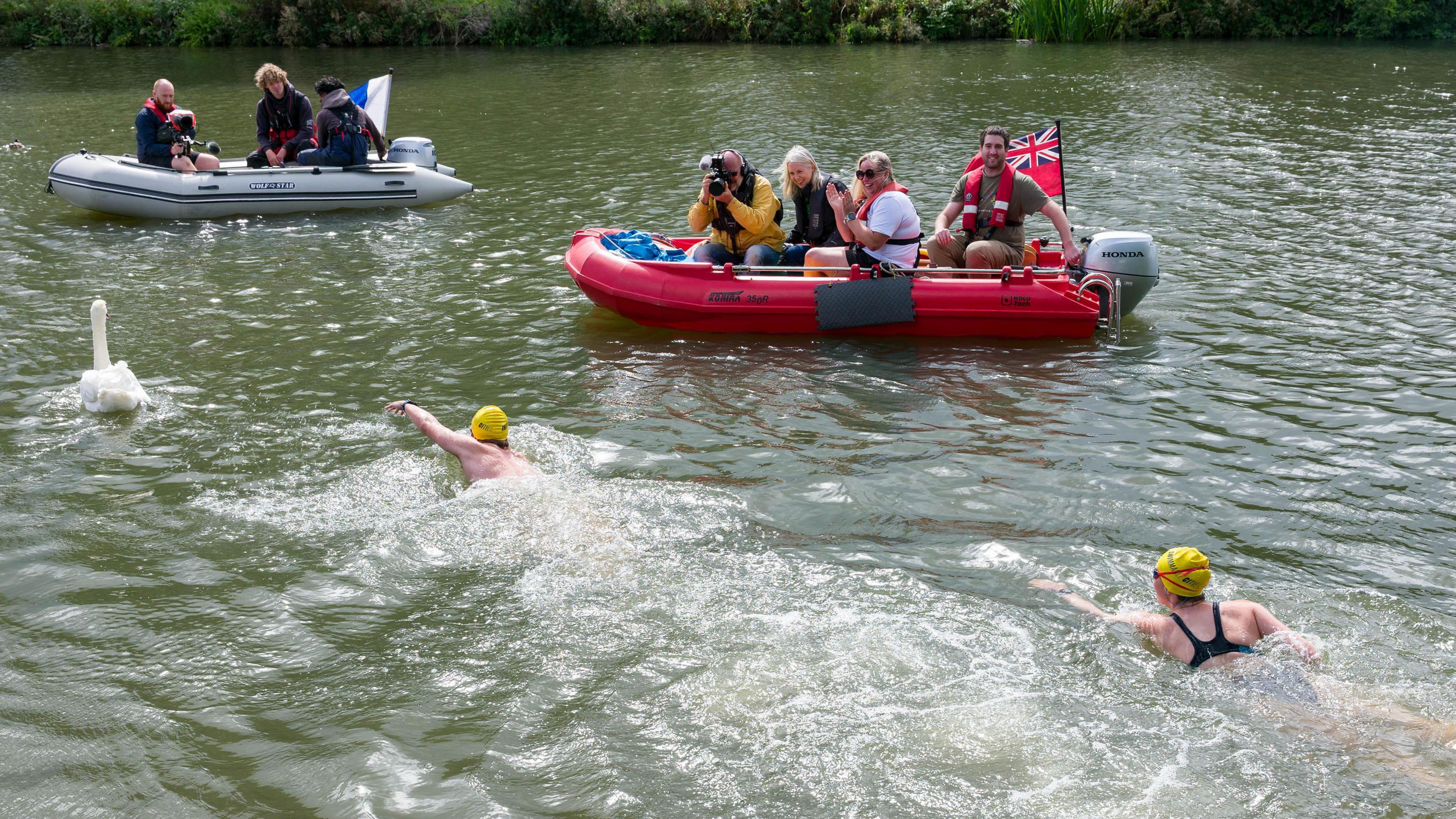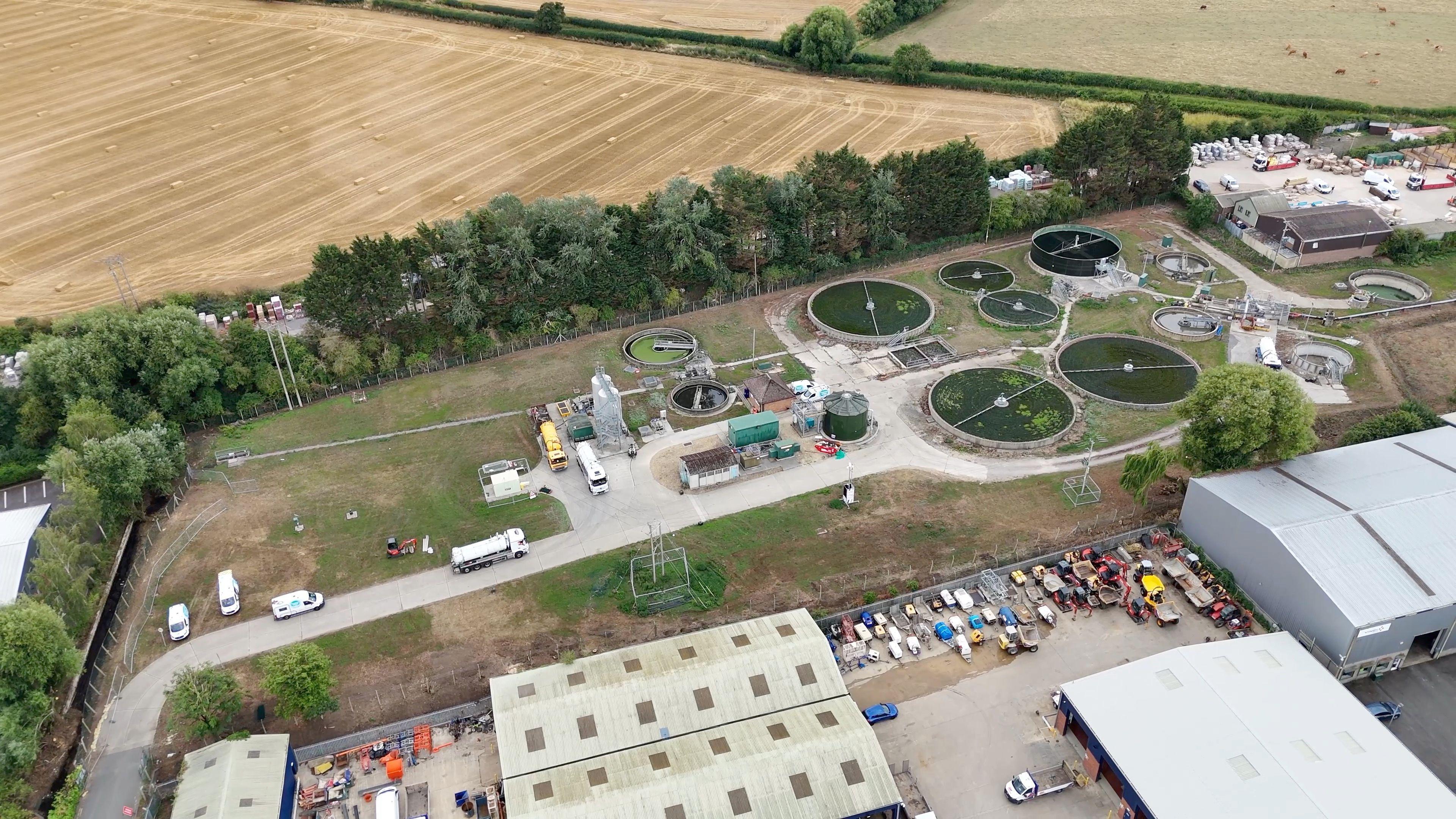Athletes swim Thames to highlight 'sewage crisis'

The swimmers in the challenge are representing the UK's four nations
- Published
Eight swimmers are taking part in a 200km (124-mile) swim relay along the length of the River Thames to raise awareness of the UK's "sewage crisis".
The participants, coordinated by Surfers Against Sewage (SAS), set off on Monday from Lechlade, Gloucestershire, and will finish at Teddington Lock on Thursday.
They will then travel by boat and kayak to Westminster, where they will call for "urgent action to protect the UK's rivers, lakes, and seas".
Swimmer Jessika Robson said: "Taking part in this swim is my way of giving back to the water that's given me so much."
Swimming the River Thames
Ms Robson is the world record holding ultramarathon and ice swimmer, and the youngest woman to swim the North Channel between Ireland and Scotland.
She is representing Northern Ireland in the swim, which features athletes from all four nations of the UK navigating through Gloucestershire, Oxfordshire, Berkshire, Buckinghamshire, and Surrey.
SAS is tracking pollution in the Thames during the challenge, monitoring E. coli, ammonia, and oxygen levels.

Campaigners are tracking pollution in the Thames during the challenge
Dani Jordan, director of campaigns and communities, said it was "shining a spotlight" on the "bravery, determination, and unity of those across the UK who refuse to accept our wild waters being treated like open sewers".
She added: "By swimming from source to the city of the iconic, yet chronically polluted, Thames, this challenge demonstrates the urgent need for action."
The other athletes are Welsh open water swimmer Emily Forwood, Scottish broadcaster and adventurer Calum Maclean, open water marathon swimmer Colleen Blair, Paris Olympian Tobais Robinson, Great British marathon swimmer Amber Keegan, and Daniel Smyth, the youngest male to swim the North Channel.
Olympian Hector Pardoe is representing Wales in the challenge
Thames Water, which was recently granted permission to pay its record fine of £122.7m in instalments, described "clean, safe rivers" as a "shared priority", and said it supported efforts that raised awareness and drove improvements in water quality.
It said it was addressing its "ageing infrastructure" with £9.5bn of investment towards its wastewater assets.
"The newly completed Tideway Tunnel will reduce the volume of discharges entering the tidal Thames in a typical year by 95%," it added.
But it said farming, industry, wildlife, and run off from roads also affected river health, and that everyone had a "critical role to play" in meeting the demands "that come with population growth and climate change".
A Defra spokesperson said: "This government has put in place the building blocks to clean up England's rivers, lakes and seas for good.
"We have reset the industry, with new laws to block bonuses for 10 polluting water executives.
"Now we are going further, investing over £104bn of private investment to upgrade crumbling pipes and halve sewage pollution by 2030."
Get in touch
Do you have a story BBC Oxfordshire should cover?
You can follow BBC Oxfordshire on Facebook, external, X (Twitter), external, or Instagram, external.
- Published2 October

- Published29 July
